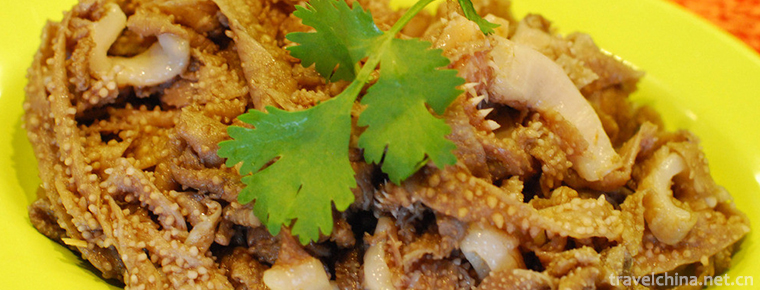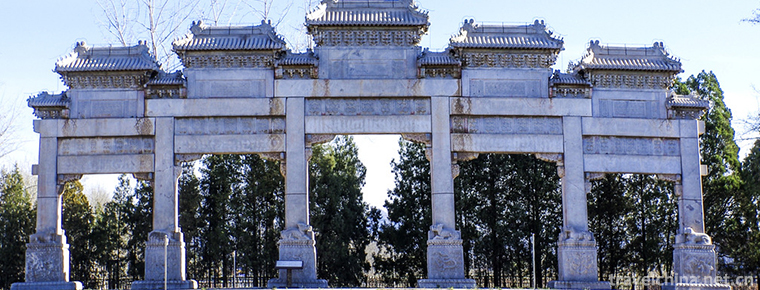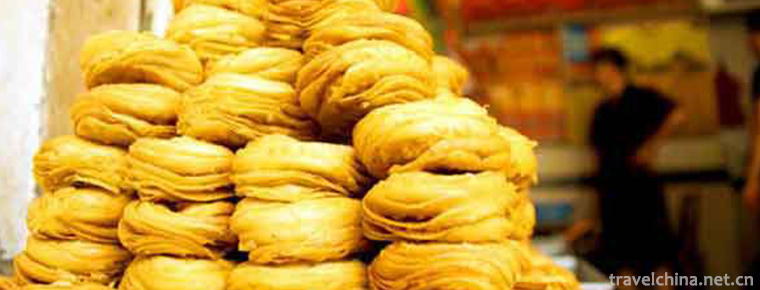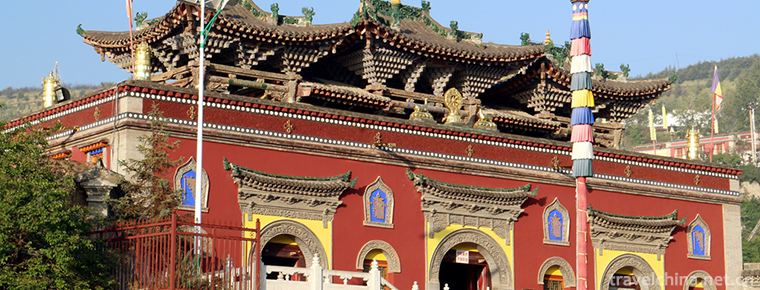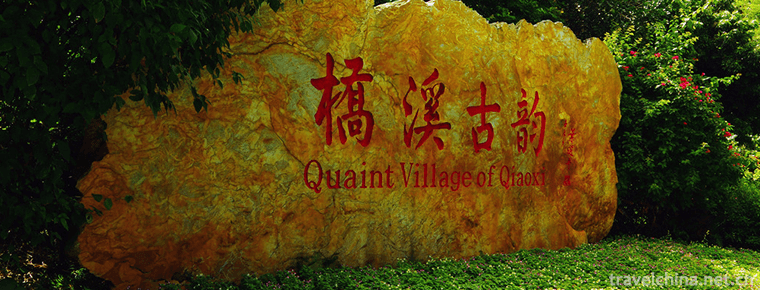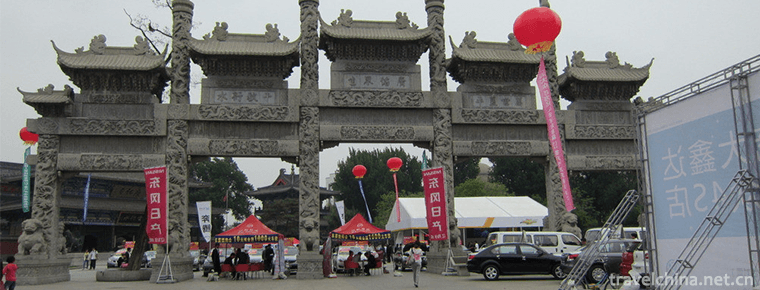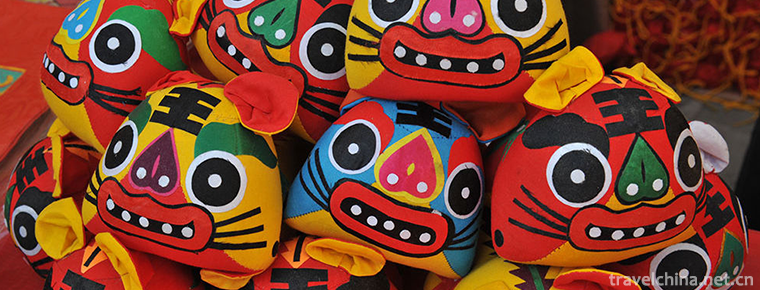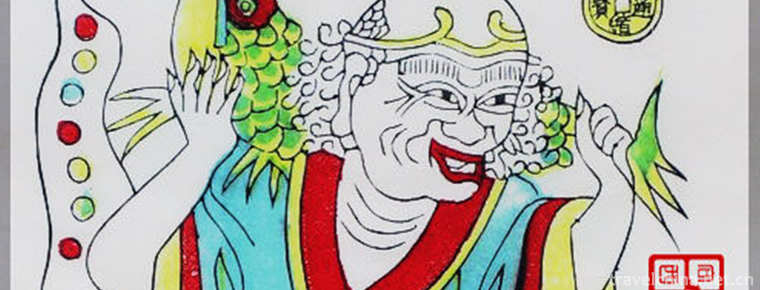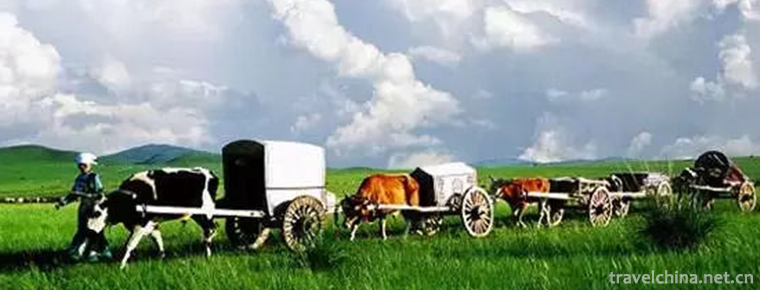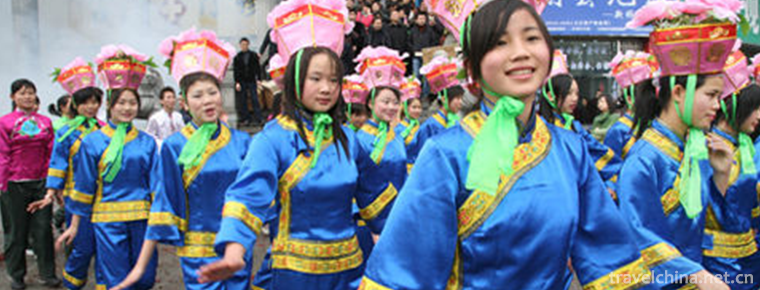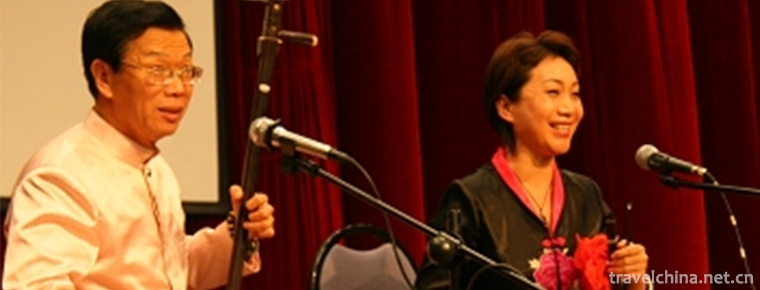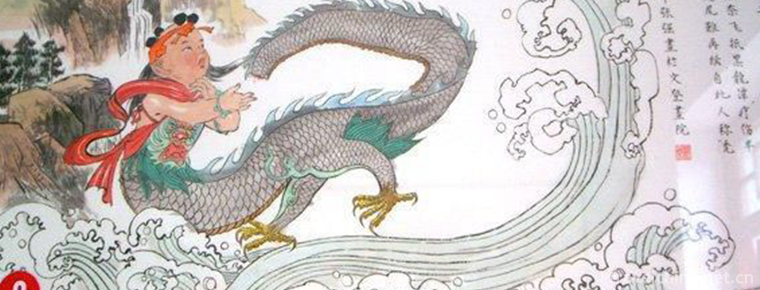Huai Bang
Huai Bang
Huai Bang (also known as Huai Diao, commonly known as Huai Qing Bangzi, Lao Huai Bang, Xiao Bang Opera and Xiao Ban Opera), is one of the traditional local operas in Henan Province and one of the national intangible cultural heritage.
Huaiba's predecessor was a sea god drama evolved from the surround table rap and pray for rain, which was formed in Hongwu and Yongle years of Ming Dynasty. Most of the inhabitants of Hanoi County moved from Hongdong area of Shanxi Province, so Haishen Opera maintained the performance form of Shanxi Opera, combined with Hanoi's local customs and dialects and local dialects, gradually formed a kind of vocal opera which was close to Bangzi of Shanxi Middle Road and had the characteristics of Huaiqing Mansion. Its repertoire, aria, pronunciation and music all had strong local color.
On May 20, 2006, Huaiba was approved by the State Council of the People's Republic of China to be included in the first batch of national intangible cultural heritage lists, the heritage number IV-25.
historical origin
origin
During Jin Tiande's reign (1149-1153), the "stories of social fire" such as "bamboo horses", "dry boats" and "dragon lanterns" were popular in Huaiqing prefecture. The minors of miscellaneous tunes such as "cut flowers", "pick flowers basket" and "wind swing willows" were already sung among the people. It can be said that "the story of social fire" and miscellaneous tunes, as well as the subsequent "sea God drama" laid a certain foundation for the formation of Huaibang. In the Ming Dynasty, Zhu Zai, the master of the world's music, absorbed the essence of folk music, expounded the twelve average rule in scientific way, and promoted the development of folk music art. At that time, the popular "ring class" and "golden drum club" were created by Zhu Zai. Later folk artists gradually moved the folk tunes and legends to the stage of the opera, and were influenced by Yiyang dialect, Kunshan dialect and ballads. With the influence of Bangzi Opera and the continuous reform and innovation in the long-term artistic practice, Huaibang Opera, a Bangzi Opera, has gradually formed in the system of Bangzi Opera.
Development
After the founding of New China, under the guidance of the Party's literary and artistic policy of "letting a hundred flowers blossom, weeding out the old and bringing forth the new", the amateur Huaibang Opera Troupe in the ancient Huaiqing prefecture has sprung up rapidly. In 1950, 26 theatre troupes were restored in Wuzhu County, and in 1958, 66 troupes were developed. In 1953, there were 32 opera troupes in Qinyang County at that time. At the beginning of 1955, the government of Qinyang County established the Huaibang Opera Troupe, which grew to more than 100 in 1957. In order to further support and develop Huaibang, Xiuwu County established the Huaibang Opera Troupe in 1958 (later abolished).
After 1960, because of the communication and influence of art, especially the influence of Henan Opera, Huai Bang absorbed the artistic characteristics of other operas too much in the reform, and lost the characteristics of the opera, such as the sharp strings (big strings) of Huai Bang were removed.
After the "Cultural Revolution", although Huaibang opera has recovered, the audience has also decreased since the business personnel were in a state of indifference after more than ten years of dynasties. Except for the Huaibang Opera Troupe in Qinyang County, the rural amateur theatre troupe only performs at the New Year's Day.
Representative repertoire
As of 2015, Huaibang has more than 300 traditional operas, most of which have no scripts, and all of them are handed down by the old artists. Representational plays include "Anti-Xijing", "Ancient Huai Case", "Zhang Chun Drunken", "Changing Old and Young", "Red Pearl Girl", "Catching up with Qin San", "Yuanmen Chopper", "Nine Heads Case", "Peach Blossom Ancestral", "Fengyi Pavilion", "Lao Zhengdong" and "Five Girls Baishou".
Distribution area Huaiba is mainly popular in Qinyang, Humanity, Jiyuan, Mengzhou, Wenxian, Wuzhi, Xiuwu, Yuanyang, Huojia, Jiaozuo and Xinxiang of Henan Province.
Inheritance and protection
Inheritance value
Huai Bang's artistic form is unique, so strengthening the excavation, rescue and protection of Huai Bang's operas plays an important role in promoting national culture, strengthening the study of the system of Chinese Bangzi's voice operas, and enriching and perfecting the history of Chinese drama.
Inheritance status
Huaiba's social foundation for survival and development has undergone changes. Serious phenomena such as downturn in the performance market and job-hopping of actors have emerged. The whole drama is facing a situation of lack of successors. Measures need to be taken to rescue and protect it as soon as possible.
Inheriting characters
Zhao Yuqing, female, Han nationality, born in October 1940, is from Qinyang, Henan Province. He is a performer of Huaibang Association in Qinyang, Henan Province. He is the representative successor of the second batch of national intangible cultural heritage projects of Huaibang.
Guo Quanren, male, Han nationality, born in February 1941 in Qinyang, Henan Province, is a national second-class performer and a representative successor of the second batch of national intangible cultural heritage projects in Huaiban.
protective measures
In 2000, the government of Qinyang City established Zhuzai Moisture Moisture Moisture Art School.
Guo Quanren's works, such as Selected Huaiba Singing Opera 1990 edition, Huaiba Art 1993 edition and Huaiba Forum Collection 1994 edition, provide a rich cultural basis for the protection and inheritance of Huaiba.
social influence
Important activities
In 1956, the Huaibang Opera Troupe of Qinyang County participated in the first Henan Opera Visiting and Performing Conference.
In 1982, Xinxiang Regional Culture Bureau held a symposium on Huaiba Singing Music in Qinyang County.
In 2005 and 2006, Jiaozuo Municipal Culture Bureau and Qinyang Municipal People's Government held three "Shennong Cup" Huaibang Opera Competitions successively.
Honorary commendation
In 1992, the Huaiba Opera Troupe of Qinyang City was named "the first troupe in the world" by the Ministry of Culture.
In 2004 and 2005, Huaibang Opera Troupe of Qinyang City won seven gold medals of "Henan Province's Rare Folk Art Opera Performance".
In 2006, Modern Huaibao Opera "Wang Dongming" was selected as the "Five One" Project Award of Henan Province.

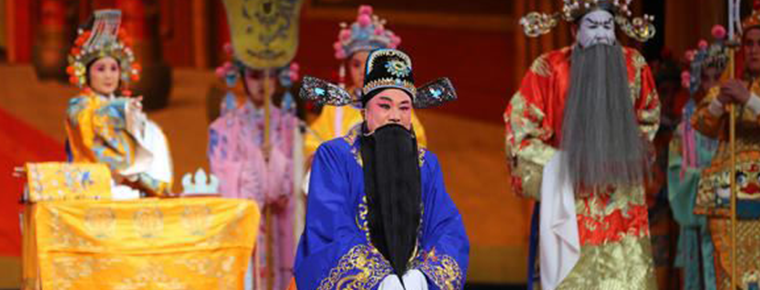
-
Old Beijing fried Morchella
The most famous famous food in Beijing is old Beijing tripe and Beijing roast duck. As for the oldest and most prosperous snacks in Beijing, belly burst is definitely the best among them..
Views: 162 Time 2018-10-27 -
Ming Ming Dynasty Tombs Scenic Area
Ming Tombs, World Cultural Heritage, National Key Cultural Relics Protection Units, National Key Scenic Spots, National AAAAA Tourist Scenic Spots..
Views: 192 Time 2018-11-24 -
Anhui rescue
Anhui rescue Great rescue is a traditional feature of Shouxian County in Anhui Province, which has a history of more than 1000 years..
Views: 210 Time 2018-11-27 -
Taer Temple Scenic Area Xining City
Tar Temple, also known as Tar Temple, was founded in the 10th year of Hongwu Ming Dynasty (1377). Named after the Great Silver Pagoda built in memory of Zongkaba, the founder of the Yellow Religion.
Views: 124 Time 2018-12-12 -
Yan Nanfei Tea Field Scenic Area
Yannan Fei Tea Field Resort, located in Yanyang Town, Meixian District, Meizhou City, is the first AAAA-level tourist attraction in eastern Guangdong Province, and has been upgraded to 5A-level touris.
Views: 170 Time 2018-12-12 -
Guangyou Temple Scenic Area
Guangyou Temple is located in Liaoyang City, Liaoning Province, with Baita in the West and moat in the east. It covers an area of 60,000 square meters. The central axis of the north and south is archw.
Views: 150 Time 2019-01-13 -
Cloth tiger
Cloth tiger is a kind of traditional handicraft which has been widely spread among Chinese people in ancient times. It is also a good toy for children, indoor decoration.
Views: 246 Time 2019-04-04 -
Fengxiang Wood Engraving New Year Picture
Woodblock New Year Painting is a traditional folk art form with a long history in China. Fengxiang Woodblock New Year Painting is a major school of Chinese traditional folk New Year Painting..
Views: 212 Time 2019-04-29 -
Production Techniques of Mongolian Lele Car
Lele cart is a cattle cart in Mongolian area, also known as roller cart. Its origin can be traced back to the "Yuan Yuan" recorded in Han Shu. As far back as the Qin and Han Dynasties, the H.
Views: 189 Time 2019-06-03 -
Quanfeng Lantern
Quanfeng Lantern is a traditional folk art form in Quanfeng Town, Xiushui, Jiangxi Province. It is an artistic performance activity between lamp, opera and dance. Its main feature is the performance o.
Views: 150 Time 2019-06-11 -
Shandong Qinshu
Shandong Qinshu is one of the traditional folk art varieties in Shandong area, also known as "Xiaoqu", "Yangqin", "Shandong Yangqin", "improved Qinshu" and so o.
Views: 186 Time 2019-06-13 -
Legend of bald tailed Lao Li
Folk legends of bald-tailed Lao Li are widely circulated in Shandong Province, and similar written records are found in Yuan Mei's Zi Yu of the Qing Dynasty: "Bi Shifu, Wendeng County, Shandong P.
Views: 127 Time 2019-06-23
